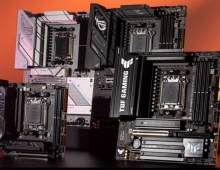
Intel Releases Updates to Protect Systems from Security Exploits
Intel has developed and is issuing updates for all types of Intel-based computer systems - including personal computers and servers - that render those systems immune from both exploits (referred to as "Spectre" and "Meltdown") reported by Google Project Zero.
Intel says it has already issued updates for the majority of processor products introduced within the past five years. By the end of next week, Intel expects to have issued updates for more than 90 percent of processor products introduced within the past five years. In addition, many operating system vendors, public cloud service providers, device manufacturers and others have indicated that they have already updated their products and services.
Intel believes that the performance impact of these updates is highly workload-dependent and, for the average computer user, should not be significant and will be mitigated over time. While on some discrete workloads the performance impact from the software updates may initially be higher, Intel says that additional post-deployment identification, testing and improvement of the software updates should mitigate that impact.
System updates are made available by system manufacturers, operating system providers and others.
Intel encourages computer users worldwide to utilize the automatic update functions of their operating systems and other computer software to ensure their systems are up-to-date.
Google develops techniques to protect against "branch target injection" attacks
Google's Project Zero team has already disclosed detailed technical information on three variants of a new security issue involving speculative execution on many modern CPUs.
In response to the vulnerabilities that were discovered, the company has developed a novel mitigation called "Retpoline" -- a binary modification technique that protects against "branch target injection" attacks. Google's security researchers have shared Retpoline with Google's industry partners and has deployed it on Google's systems, where they have observed "negligible impact on performance." In addition, Google has deployed Kernel Page Table Isolation (KPTI) -- a general purpose technique for better protecting sensitive information in memory from other software running on a machine -- to the entire fleet of Google Linux production servers that support all of Google products, including Search, Gmail, YouTube, and Google Cloud Platform. There has been speculation that the deployment of KPTI causes significant performance slowdowns. Google says that performance can vary, as the impact of the KPTI mitigations depends on the rate of system calls made by an application.
"On most of our workloads, including our cloud infrastructure, we see negligible impact on performance. In our own testing, we have found that microbenchmarks can show an exaggerated impact, said by Matt Linton, Senior Security Engineer at Google.





















